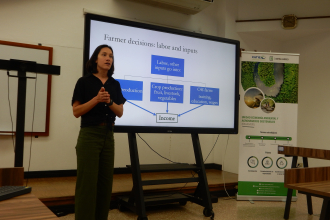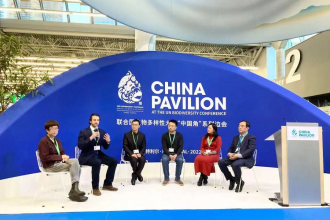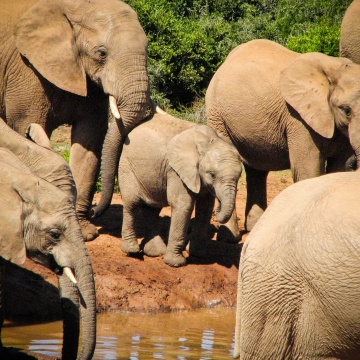Call for Papers - Special Issue on 'Macro-financial Policy at the Crossroad: Addressing Climate Change, Biodiversity Loss, and Environmental Degradation'
Eurasian Economic Review A Journal in Applied Macroeconomics and Finance The changing climate, loss of biodiversity, and environmental risks threaten the sustainability of economic systems worldwide…

EfD seminars highlighted interesting research results and ongoing projects
EfD Central America arranged two EfD Seminars to share research processes by researchers from North Dakota State University and the University of Idaho. These two events signaled the return of the EfD…
Sanctioned Quotas Versus Information Provisioning for Community Wildlife Conservation in Zimbabwe: A Framed Field Experiment Approach
AbstractWe investigate the behavioural responses of natural common-pool resource users to three policy interventions—sanctioned quotas, information provisioning, and a combination of both. We focus on situations in which users find utility in multiple resources (pastures and wild animal stocks) that all stem from the same ecosystem with complex dynamics, and management could trigger a regime shift, drastically altering resource regrowth. We performed a framed field experiment with 384 villagers from communities managing common-pool wildlife in Zimbabwe.

EfD Central America researcher talks about climate change in ECO TV
Bárbara Viguera, a junior researcher of EfD Central America, was interviewed by the journalist Lisseth Alva about the impacts of climate change, during the one-hour television program called ECO TV…
Urban agriculture for an inclusive green economy model in Tanzania
According to the inclusive green economy (IGE) model, no one should be left out of the green economy revolution. To support an IGE approach, the Tanzanian government must develop policies to support urban agriculture ecosystems because, firstly, Tanzania is an agricultural country. Secondly, agriculture provides many benefits for households, such as boosting livelihoods and improving food security. Third, urban agriculture enhances urban biodiversity and produces ecosystem services needed for urban resilience to climate change and increases tree cover which absorbs greenhouse gases.

EfD China researchers share experiences on foresty and biodiversity in COP 27 and COP 15
Xu Jintao and Shi Xiangying attended the UN Climate Change Conference and UN Biodiversity Conference. Gathering with participants from various countries, Xu Jintao shared his research story on how to…
Pagination
- Previous page
- Page 8
- Next page
